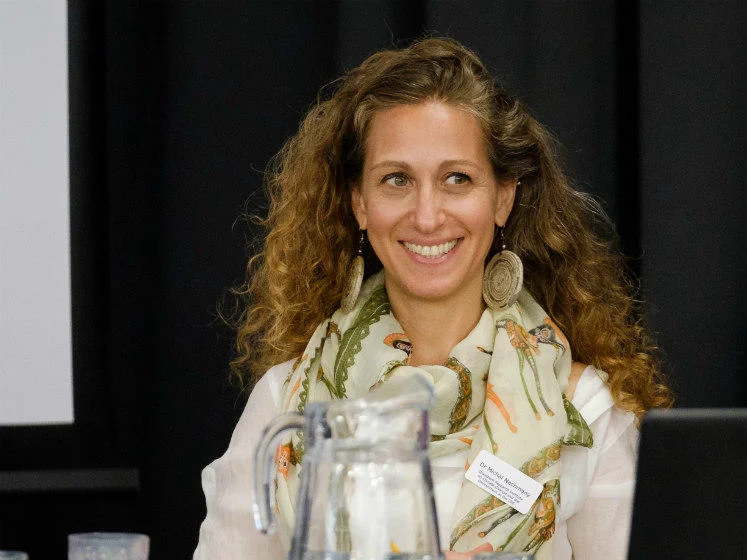Q&A with Michal Nachmany
Investigating climate change laws and policies
Michal is a policy officer in the Grantham Research Institute on Climate Change and the Environment
We can't fix climate change without robust, intelligent, well-informed, and rigorously-implemented policymaking.

What are you currently researching?
In recent years I have been working on a project researching climate change laws and policies– documenting over 1500 laws and policies globally, as well as climate change related law suits in almost 30 countries. It is a knowledge resource for parliamentarians, policymakers, researchers, and broader communities, to learn from each other, and improve national responses to climate change. We always get asked ‘But how do we know that these laws are good laws?’, so we are increasingly looking at the processes that surround the design, implementation and oversight of laws.
I now focus on issues of climate change governance: what institutions, information gathering mechanisms, and decision making processes, do countries put in place in order to plan, execute, and oversee their climate change laws and policies. We are trying to identify better practices or recurring obstacles, and illuminate those in order to inform better policymaking.
In the last few months I have joined the Transition Pathway Initiative – we research what efforts the most polluting, highest greenhouse gas emitting companies in the world do, to change their practices and transition to a low carbon economy. We provide institutional investors (and anyone else, as our data and analysis are always open access) with information that supports their strategic investment decisions, and enables them to engage with these companies to accelerate and shape this transition.
What attracted you to this area of research?
I like a challenge: when you address climate change you are also dealing with health, poverty, human rights, gender, you name it – the social activist’s all-in-one dream.
I’m also an optimist - I don’t only think that climate change is the most pressing challenge of our time, but actually believe we can do something about it.
Finally, I’m a big fan of questioning assumptions, and dealing with climate change requires us to revisit them all: how we live, what we eat, what are we willing to overlook, who we leave behind when the house is burning.
How will your research improve or have a wider impact on society?
We can’t fix climate change without robust, intelligent, well-informed, and rigorously-implemented policymaking. I am in the business of supporting such policymaking, alongside many others. Part of my work is direct engagement with parliamentarians and policymakers, which is an opportunity to take the work off paper and into the real world.
What do you hope to do career-wise, long term?
More of this. Throughout my career I have always created, curated, and brokered knowledge to decision makers so they could make better decisions. I think that on bigger scales, perhaps on broader agendas, that is what I want to continue doing. I have no idea what that might look like in terms of a job, but I’m loving the journey.
What are your top three tips to prospective students on the most effective way to approach research and keep stress levels down?
First, unlearn everything you know, and make no assumptions. Not about the outcome of your research, not about the people you are going to interview, not about where you will be in five years’ time. Look at everything with fresh eyes and an open heart.
Second, surround yourself by a support network. People to talk to, about and not about your work, people who remind you to eat (or better, bring you food), who believe in you, pull you up, and don’t complain if you disappear for weeks at a time.
Thirdly, I cannot understate the importance of meditation and midday naps in the library.
What resources are available at LSE to help young researchers?
More experienced researchers who’ve seen it all. Other young researchers who are seeing it for the first time. The PhD Academy and TLC run some great workshops.
What do you enjoy most about studying at LSE?
Being surrounded by mind-blowingly inspirational people, who want to make a real difference to more than their bank account.